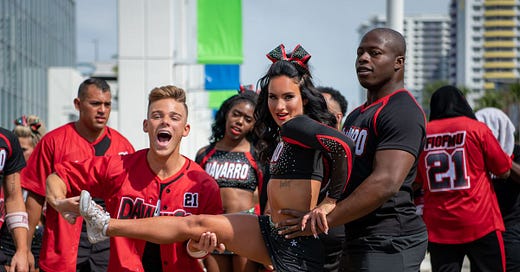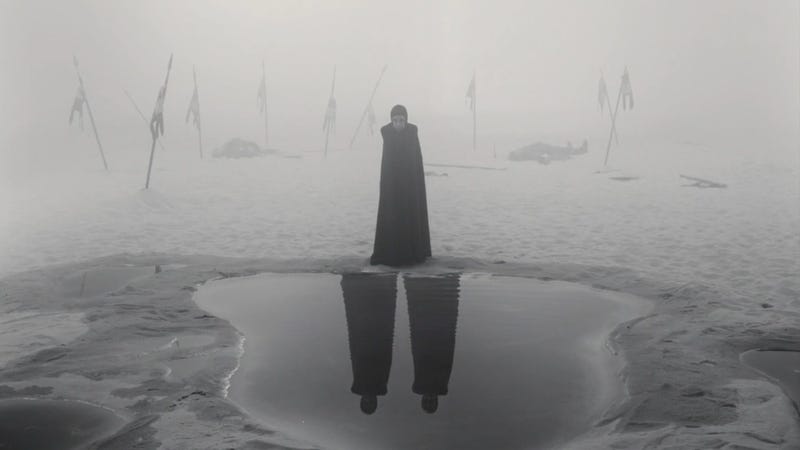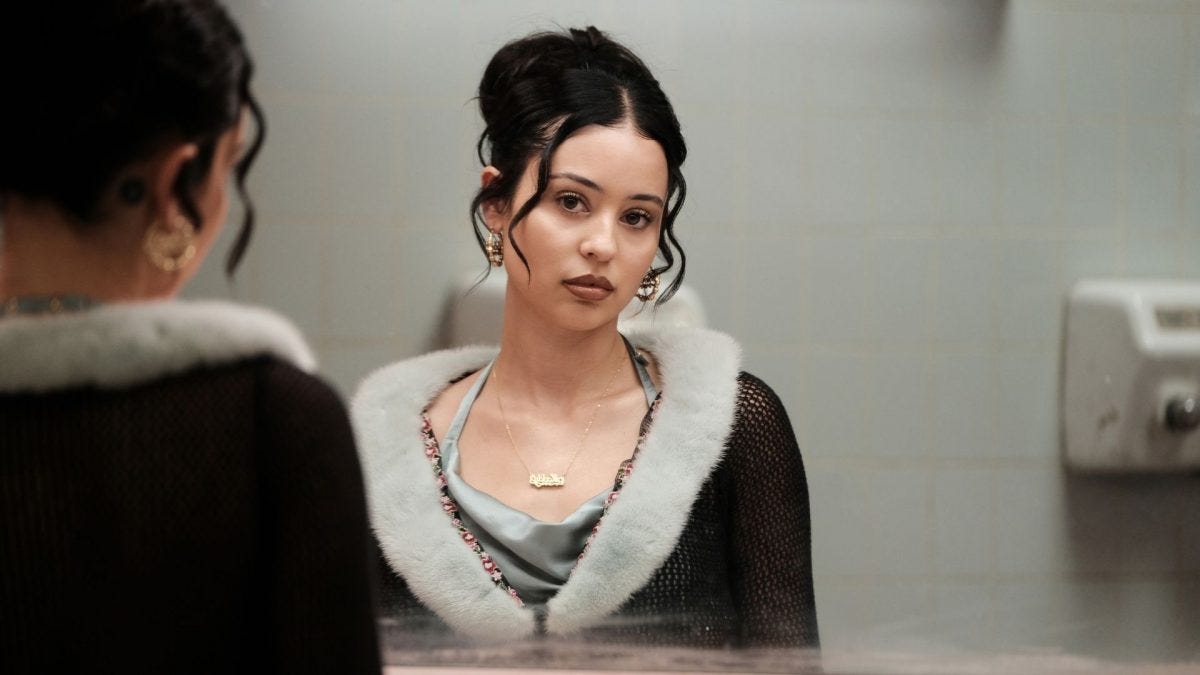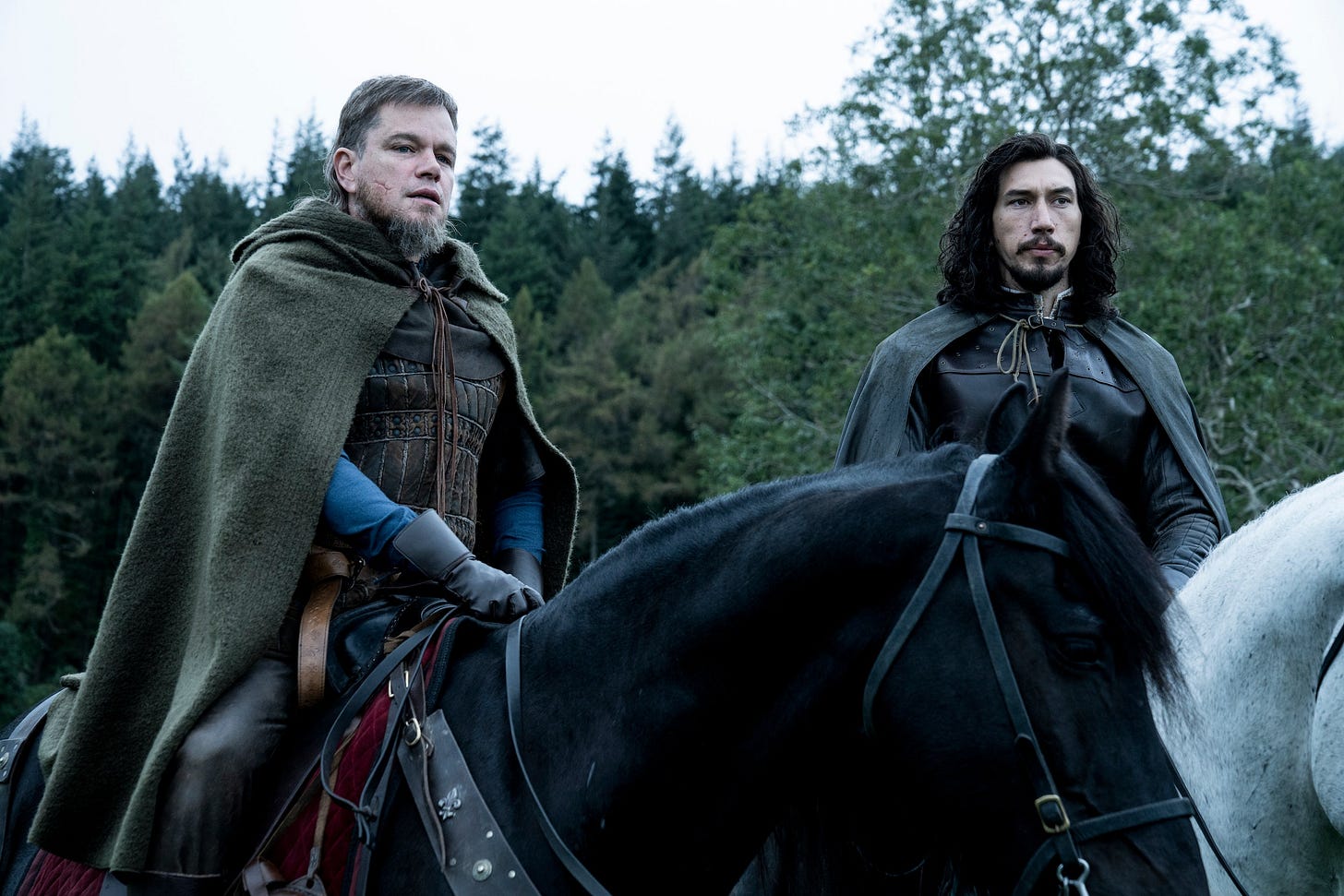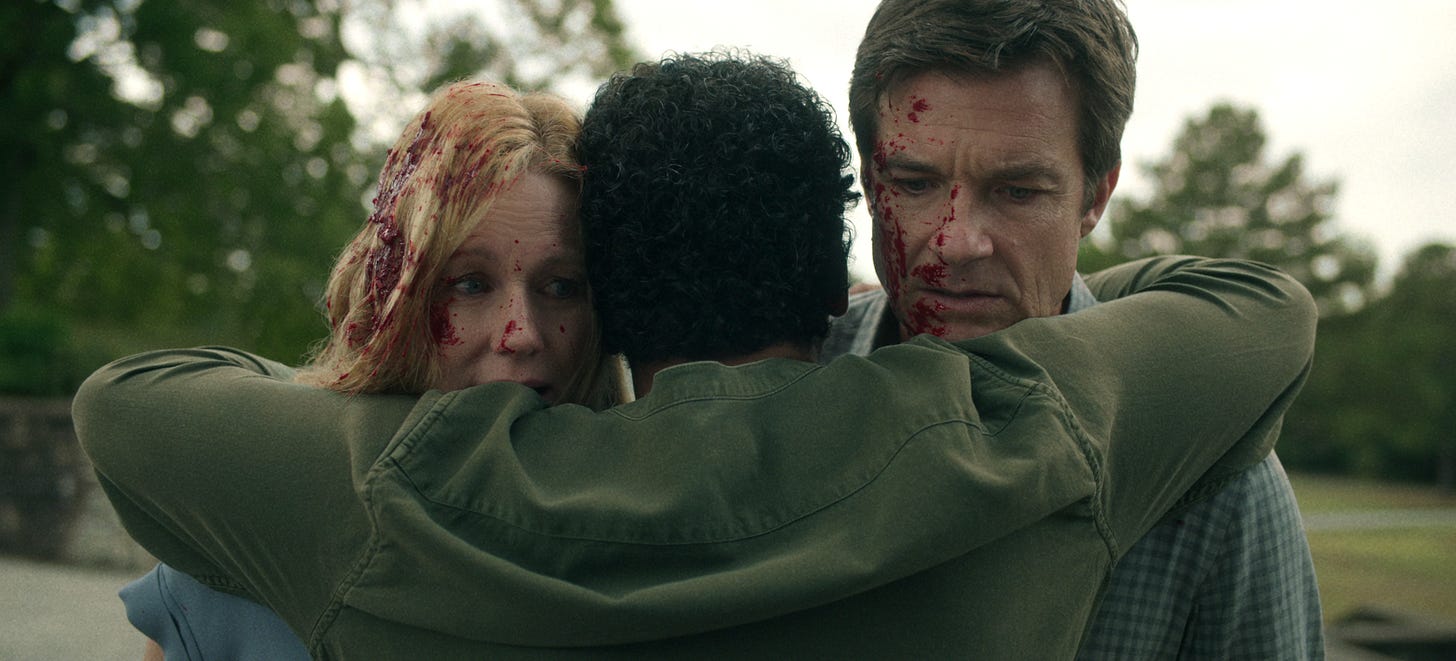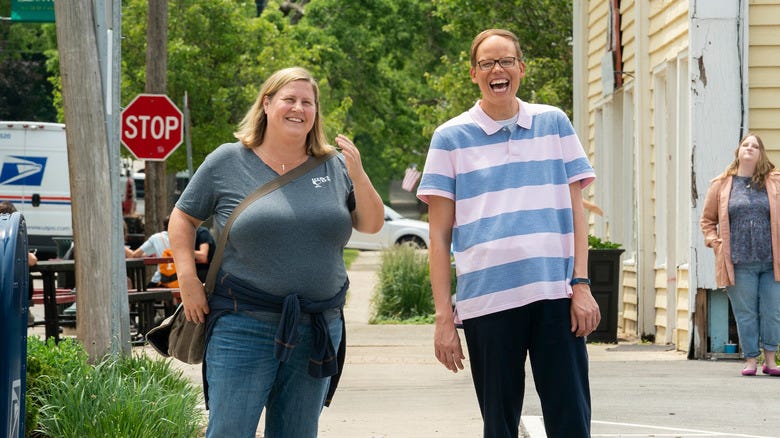January has certainly delivered, readers. There’s much to talk about: long-awaited new installments into a hit documentary series and a now popular dramatic series, two epic medieval stories now retold, and a quietly charming new series about the American Midwest.
Cups up, readers; I’ll pour.
Cheer (Season 2)
Netflix - Reality - Stumblers Stumble
Synopsis
In Texas, junior collegiate competitive athletes and their coaches struggle with questions of loyalty, morality, identity, and self-worth during the 2019-2020 and 2020-2021 academic years.
My take
In a way, it’s better that we had to wait til 2022 for this second season of Netflix’ Emmy-winning hit documentary series Cheer, about the highly competitive junior-collegiate cheerleading rivals and national champions in Texas. The upheaval of the interceding months, complicated by the pandemic, pressed even more drama both directly and indirectly into this compact formation of a docu-series. Not only did the pandemic restrictions themselves curtail the 2019-2020 competitive cheerleading calendar and consequently crush the spirits of the teams in focus, but also did the time spent since the pandemic bring to light the effects of the fame the series’ first season reflected back onto the teams’ members and leaders — effects that in one case were very severe.
Rightly in position as a cultural descendent of the still popular and now classic Bring It On (Reed [dir.] & Bendinger [wri.], 2000), Cheer like its ancestor fundamentally qualifies for such popular attention on the merits of the extreme feats of athletic and gymnastic skill the central figures bring to the screen alone, but earns real viewership in the dramatic personal narratives that take those figures through rolls, poses, and tumbles off the mat. Especially this second season, after I’m sure series creator and director Greg Whiteley saw the recognition and platform his work was being given by the mass culture, Cheer digs deep — and digs well. Confronting the illusory allure of fame; the tedium in sustaining it; the individualistic greed of people in power; the gaslighting they use to sustain that power; toxic masculinity, homophobia, and their effects in the sport; the economic knock-on effects (good and bad) of pursuing cheer; and the danger in putting all one’s eggs into a single basket, the show has no shortage of full barrels to tap and gives, like a seasoned sommelier, each its appropriate time in the spotlight.
For this curated flight through the flavors of cheerleading life at its most competitive in Texas, I lift my glass in applause from the sidelines.
Temperature check
Hot
The Tragedy of Macbeth
Apple TV+ - Drama - Power Play
Synopsis
The words of three weird women change the choices and paths of a timid but ambitious thane and his steely wife.
My take
“This melody you will hear follows me everywhere I go. I hear it when I am sad and especially when I am glad. It seems to mock me for my past sins. It taunts me, and it is driving me crazy:” Macbeth.
O, readers, how badly I want to leave my take on Joel Coen’s new film, an adaptation of Shakespeare’s (1623) The Tragedy of Macbeth, right there, in the words of Édith Piaf; for, in my view, the sentiments she expresses are not only those that the Thane of Glamis come Cawdor experiences, but also those that I myself experience, upon the film’s reflection. I’ll spare you the mysterious pith, however, and say more than just artful words.
Top of my list of points to mention must be Bruno Delbonnel’s cinematography. Frankly, I think, choosing to operate in only a black-and-white monochrome has channelled his attention to all the right places; he fills the frame with spark and mysticism through smart choices in placement, filter, and angle that not only bring the visual storytelling to a new level but moreover make the visual storytelling actually possible. Take away this contribution to the film, the structure would fall and look feeble instead.
Of course, Coen’s directing itself must have worked closely in hand with Delbonnel’s choices; blocking and pacing a scene to take best advantage of its space, its message, and its import in the story is the substance without which a strong cinematographer does little more than make pretty pictures.
Crediting Coen too much, however, for the gifts his actors bring to the screen may be overstating his case. Of all the good performances in this piece, McDormand’s Lady Macbeth and Hunter’s dual the Witches and the Old Man startle and amaze to the greatest extent. I genuinely reünderstood the almost stock character of the Thane’s wife, because of how Frances played her. It may be an odd comparison to say so, one perhaps only occurring to me because of how recently I revisited the following alternate material, but McDormand’s Lady Macbeth may be best marked by the opening lines of Angelou’s (1978) “Phenomenal Woman”:
“Many people wonder where my secret lies. / I’m not cute or built to suit a fashion model’s size. / When I try to show them, they think I’m telling lies. / I say, It’s in the reach of my arms, the span of my hips, / the stride of my step, the curl of my lips: / I’m a woman, phenomenally. / I walk into a room just as cool as you please / and to a man the fellows stand or fall down on their knees / and then they swarm around me, a hive of honey bees. / I say, O, it’s the fire in my eyes, the flash of my teeth, / the swing in my waist, the joy in my feet.”
So joyful McDormand’s steps down the corridors of her character, we recognize her applaudingly; and for Hunter, an actress already well known for her physicality on the stage, the joy is similarly corporeal, though much more obviously. Hunter cranes, crooks, conceals, and congeals her body to marvelous effects, drawing out the descriptly “weird” tones her Witches must hit through herself entirely, in complete active expression. Like McDormand’s but far more saliently, Hunter’s choices for those Witches find new purchase on ~400-year-old ground and, in her case alone, upend previous and pervasive notions of who the Witches are and how they behave without abandoning faith in the source material.
Despite these self-evident truths on screen, readers, it seems the greatest share of the active conversation around this new The Tragedy of Macbeth is somehow Mr. Washington’s, for his performance in the leading role. I do not begrudge the man the praise entirely; his performance is … careful. No, I only call into question the fulsome push toward recognition he is being given, when I found his readings less than exemplary throughout. Consider, for example, his take on the following lines (timestamp: 13:44 if you’d like to go watch it for yourself):
“Present fears are less than horrible imaginings. My thought whose murder yet fantastical shakes so my single state of man, that function is smothered in surmise and nothing is but what is not. If chance will have me king, then chance may crown me without my stir.“
Washington opens his reading with an exasperated casualness; his character is alone and, for the first time, really processing this simultaneously glorious and grim prospect that will rend him personal achievement at cost, as the Witches have so seemingly promised. I’m with Washington this far. Then, however, he fails to pull out of his trance enough to better read that final sentence, by which point his character has come to a decision (albeit a temporary one) about his part to play in all this prognostication:
“If chance will have me king, then chance may crown me without my stir.”
I’ll credit him that it’s a tough move to make, artfully subsiding the latent frustrations of the prior lines enough to tally a final judgement, beleaguered though it still may be, on the opportunity he sees. Even in simple terms of syntax alone, the weight of the message of the final sentence comes at its end, when we learn that he has decided what he’ll do (i.e., nothing); so, even the sentence alone demands an internal 180º turn of sorts. The beat of that line, then, to carry its weight must come as if it were written this way,
“If chance will have me king, then chance may crown me … without my stir,”
with a small beat taken before “without” and a spoken emphasis on that operant preposition. Instead of granting that beat, however, Denzel drowns it — slurring it at the tack end of the rest of the material, as if it remained all in kind. My point here, readers, to be clear, is not to nitpick the man over a single line reading in an 1.75-hour-long movie, but rather to exemplify in a single instant the kind of inattention to his character’s resolution that I found littered throughout his performance across those nearly two hours. If forced to pick a single word about it all, I think I’d say, his performance just came across droopy — which, for a character with ambition enough to slit the throat of a friend and leader for his own gain, seems an unlikely match.
That criticism levied, however, all in all I found this film quite fine.
Temperature check
Hot
Euphoria (Season 2 Premiere)
HBOMax - Drama - It’s Complicated
Synopsis
High school students and some of their parents find their lives complicated by a friction between desire and acceptance.
My take
The roving eye sees all things, in Euphoria’s official second season opener. Establishing quietly the seeds of drama for the season, the episode plants old harvests but in many new fields. Understanding that the juice of the eventual crop will come from steady and thorough character development, the show runners charge each central character with an emotional debt that they each register in individual camera shots as their obligations for the season.
Behind the camera, Marcell Rév layers on the transposition of imagery as if chemistry, creating and reducing space via lighting and textures between the characters and ourselves as their viewers. In those effects, Euphoria retains a uniqueness among televised dramas, with few ambitious, technical, and creative enough to consider — let alone, pull off skillfully — more than a tonal, palette-based mediation between action and viewer.
Perhaps most saliently to anyone watching, Euphoria goes there in a way I wished the premiere of And Just Like That… (Star [creator], 2021) would have: actively rolling back the bias in nudity and depictions of arousal on screen in two full-frontal scenes, only one of which you might take any personal pleasure in seeing — which frankly in and of itself is important.1
All in all, the series sets up a promising jump-off for a second season to build and expand on the qualities that its first season originally brought to our screens. I, for one, am looking forward to seeing how it turns out.
(P.S. Having checked out two more episodes since I first wrote this take, I have to say, the prologue to the third episode this season is a miniature masterpiece in visual storytelling. I’m still so pleased!)
Temperature check
Hot
The Last Duel
HBOMax - Drama - Upon Mine Honour
Synopsis
Competing recollections of a series of interpersonal sleights compel two medieval French squires toward a literal duel to the death over the honor and affection of a woman.
My take
I missed The Last Duel’s theatrical run; despite a notable director and a respectable cast, the film honestly just looked dull to me and I couldn’t bring myself to go see it — especially when I knew a day like today would eventually happen, when it would become available for me to stream online. Finally having seen the film now on HBOMax, I can confidently say, “My instincts were right?”
Yes, readers, I can confidently say a question and I don’t want to hear any moaning about it — save that kind of response for when you watch Ridley Scott’s latest drama, an overly long elegy about the taxes of tiny choices and the exponential growth of emotional self-debt, in colors as grey and brown as the tones of that description. O, editing, editing, editing, where have you been?
But editing, this time, I think is not entirely to blame.
The fact is, Scott’s work in this film is fine, totally passable, and sometimes quite right even. He certainly knows how to build a world unlike our modern own, as he’s shown us several times before, and he knows how to populate that world with figures who should be interesting. He correctly identified the major tone in the film and passed that note onto his production design team, his costume design team, and his cinematographer, all of whom carried the note out with admirable fealty.
The problem is, Scott failed to correctly identify the minor tone in the film, or really any minor tone at all. Like one long unsurrendering note sounded by a lone bugle on a moorish hilltop, the film does little to modulate its own melancholy. Whereas Gladiator (2000) mixed in the arena battles and the political jockeying and Alien (1979) mixed in the scientific quietness and the personal wonder of space, The Last Duel only recurs perceived sleight after perceived sleight on behalf of almost every character who has a line, that I found myself grasping for breath in the context shot of medieval Paris and seeking delight in its note of time and place not just in the swampy wooden buildings along the Seine but moreover in the scaffolding around a half-complete Notre Dame.
And somehow, lamentably, that one note goes on for 2.5 hours.
Perhaps it’s partially that, in those past films of Scott’s I mentioned, the actors were able to stand in, even in those moments where the films could have listed toward the dull, and find brightness in their art. After all, even Crowe and Weaver, two of the most steel-faced actors on the planet, found moments of beautiful sentimentality each in what otherwise was a highly unsentimental film, one a man’s man’s war epic and the other an almost genre-defining minimalist’s sci-fi thriller. One could reasonably expect — Scott could have expected, I think — this cast, led by Matt Damon, Adam Driver, and Jodie Comer, to do the same. Now, after his own Good Will Hunting (1997), I haven’t had much esteem for Damon as an actor — and he doesn’t surprise me here — but I do have such esteem for Driver, who does. His performance is as if I can see the man struggling to find what to do more than just look bemusedly off into the air at no one in particular, and ultimately I’ve decided, as I’ve already granted above, that it’s the material hemming him in. Of the three leads, Comer is really the only one able to pull up — in only small short bursts — out of the wet cold mire.
All in all, I loved the dedication to singular immersion that the film strove for, but just wish it could have seen itself, a literally multi-faceted story, as more multi-faceted than it did.
Temperature check
Tepid
Ozark (Season 4 — Part 1)
Netflix - Drama - Choices
Synopsis
Emotionally wizened by their indenture to a Mexican drug lord, the four members of the Byrde family each fight more independently than ever to find stable footing at least for themselves amidst the constantly fluctuating power dynamics of their social and political milieux.
My take
After literally one of the best seasons of dramatic television in recent memory, Netflix’ quiet but stellar Ozark loses its mojo.
I know, readers, I know. It pained me too, to have to write that sentence.
It’s true, however. The writers’ room, for an incomprehensible reason I can chalk up to only the challenge of keeping up the momentum of the story being too great, goes back to “Writing for Television 101” tactics to shunt drama into this first half of the series’ final season. I’ll spare you, readers, from too many of the specifics, because I’d hate to spoil the new seven episodes for you, even if you now know they’re lackluster; but suffice it to say that, in comparison with the highly intelligent storytelling we’ve loved seeing from this show, we witness the random introduction of a chaotic stock character to literally foment drama out of nowhere for our beloved central characters. It’s shoddy workmanship, case in point. It’s the infomercial-advertised way out of an emotional tight space by “taking just one tablet per day.” It’s crass, and we deserved — no, not even “we” — the cast deserved better.
You know, I actually bought it when the show runners said, years ago now, that the fourth and final season might take a while to make, because they really want to honor the story and tell it right for everyone who’s come to love it, cast and crew included. So, when I saw that this new installment was regulation miniseries in length (i.e., no more than seven episodes), I thought immediately, “Wow, they really want to guarantee that this show sweeps its eligible categories at the next Emmies and takes home a ‘best show’ award — maybe even twice.”
Now, I suspect more that they and their production studio just want to milk the finally popular show for as long as they can, just like the people behind the final two Harry Potter films, and abandoned careful storytelling just so for selfish reasons; and I wonder whether the miniseries will actually win any of its eligible and “easier to win” Emmy categories on affection for its past lives alone.
Ugh, I wanted better for you, Ms. Linney. I’ll hold out hope for Part 2.
Temperature check
Cold
Somebody Somewhere (Series Premiere)
HBOMax - Comedy - Mid-Life Crisis
Synopsis
The loss of a sister emotionally unmoors a forty-something Kansan from the scaffolding of stability she’d clung to, after not figuring out her life post high school.
My take
It may be too early to make a definitive call about this one, readers. I am certainly attracted to the premise of HBOMax’s new half-hour comedy — well, drama-comedy, because what really is pure comedy anymore these days? — Somebody Somewhere, a seemingly semi-autobiographical take on queer-leaning contemporary Midwestern experiences;2 and I was charmed by its premiere episode enough to want to come back for more. However, there is much to be proven left on the plate for this series, about its ability to tell a story in a long form and to observe more than minor comedies in its nuances. There is promise, for sure, but let’s just sit and see what happens, shall we?
Temperature check
Tepid
Retrospective
As in previous episodes, readers, we skip the retrospective this time due to the surfeit of new content covered above. Til next time!
Note, reader, that I did witness in a recent episode of And Just Like That… just the same dichotomy in depiction, though by then it felt rather ‘too little, too late.’
I’m not familiar enough with show creators and writers Hannah Bos and Paul Thureen — or, really, the contemporary Midwest enough — to say for sure.

